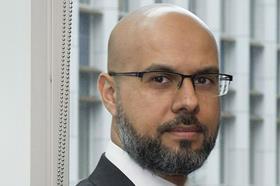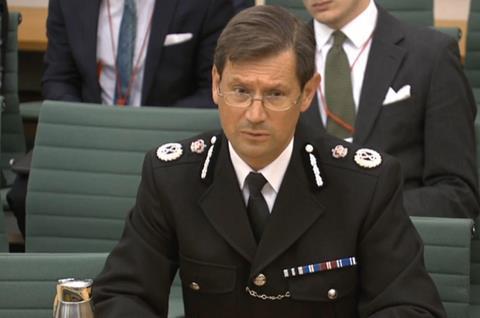With the recent announcement that Nick Ephgrave (pictured below), the former assistant commissioner of the Metropolitan Police, is to be the next director of the Serious Fraud Office, questions have already been raised about what he will bring to the table and what this means for the beleaguered agency. The SFO has lurched from crisis to crisis, particularly over the last five years.

Without a hint of irony, the agency was set up in 1988 against a backdrop of considerable public dissatisfaction with the criminal justice system’s ability to investigate and prosecute serious or complex fraud. The agency brought with it the Roskill model that envisaged the SFO acting as both investigator and prosecutor.
The intent was clearly there from the outset, reflected in the 1990 convictions of Ernest Saunders and others in the Guinness share-trading case. But the SFO’s failures were spectacular, and because they were so significant, the talk has been more about that than the things it has got right. The ability of the agency to wrap its head around disclosure has been a notable fault line. Despite the success of the main case, this was apparent in one trial that arose from the Guinness case where exculpatory evidence was not served and which resulted in the proceedings being abandoned.

More recently, disclosure issues have continued to plague the agency with long-running cases coming to an abrupt end because the SFO failed to adhere to the rules. Serco executives were recently acquitted when the agency applied for and was refused an adjournment by a Crown court judge due to disclosure issues that it had to contend with during the proceedings.
The Serco debacle was echoed in the Unaoil case, where the SFO came in for strong criticism from appeal court judges. They noted that the defence had been ‘handicapped’ by the SFO’s conduct and its material failure to disclose its dealings with a third party, whose relationship with SFO director Lisa Osofsky in particular had the clear potential to embarrass the SFO.
In its defence, the SFO would argue that the regime for deferred prosecution agreements (DPAs) has sought to right some of its wrongs. The agency has pulled in £1.3bn for the Treasury in the 12 DPAs that have been concluded to date. There are two reservations to make here. The first is that the SFO has failed to successfully prosecute any individuals who faced charges that were based on the same evidence used to secure the relevant DPAs. The second is that the DPA regime has, some would argue, created a two-tier justice system where large corporates with deep pockets are able to fund their way out of criminal sanctions.
There have also been some questionable management decisions. These range from the BAE-Saudi arms investigation to Operation Holbein to, more recently, the Eurasian Natural Resources Corporation fiasco. In that case, a High Court found that the SFO had colluded with a former City lawyer to ensure that the corporate was investigated. The effect of this appears to have had a trickle-down effect. Sir David Calvert-Smith’s review of the SFO’s handling of the Unaoil investigation noted that there was a level of distrust between case teams and senior management. The report also noted that the SFO’s own policies were not followed by personnel, with some seeing themselves as being above the guidance.
In fairness, some of the SFO’s woes have not been of its own doing. The lack of resourcing, both financial and staffing-wise, is well known, but is something over which the SFO has little control. Various governments have slashed funding, despite a dramatic increase in economic crime, which is presently valued at £100bn a year. The consequence is that top talent is not retained or attracted. And those who remain feel the strong pull of City firms that are willing to offer salaries far in excess of the civil service norm. That has a snowball effect which results in lack of enthusiasm to do a job that is critical in the UK’s fight against complex financial crime.
Firefighting comes to mind when the incoming director takes his post at the agency. Not only will he have to steady a rolling ship, but he will have to inject new zeal into the various teams. This will be tough given what they have had to endure over many years.
As the first non-lawyer to lead the SFO, Ephgrave’s appointment is unique, but that may not be a bad thing. He is likely to reinvigorate the SFO’s investigative ability so that it gets the key aspect of the Roskill model right – that of being a formidable investigator. His experience on the Criminal Procedure Rule Committee and the Sentencing Council is also likely to weigh heavy on how cases are managed before they see the inside of a court.
This may result in a reversal of fortunes for the SFO, but his success will be measured by what the next five years bring.
Iskander Fernandez is a partner and head of white collar crime at Kennedys































No comments yet